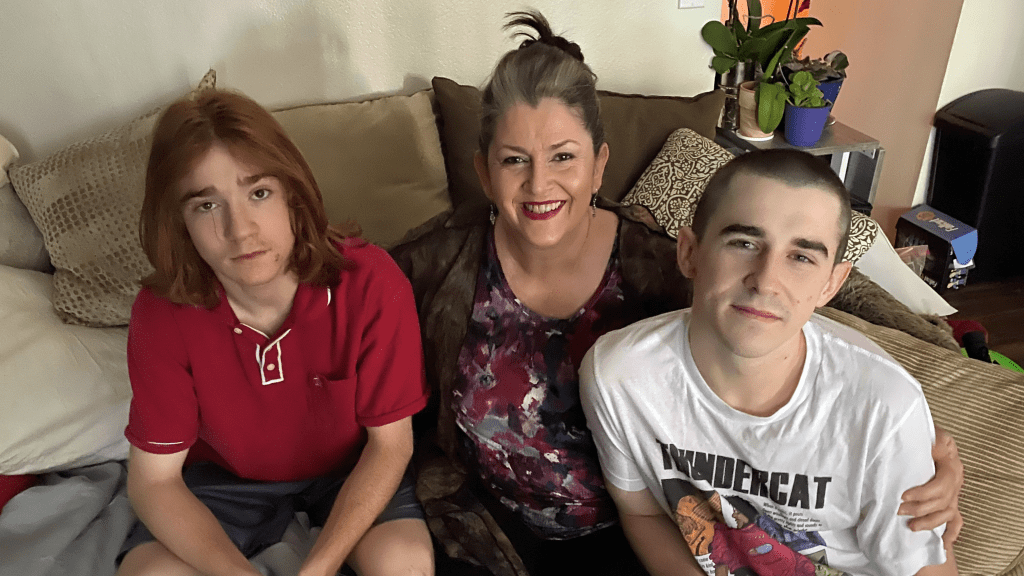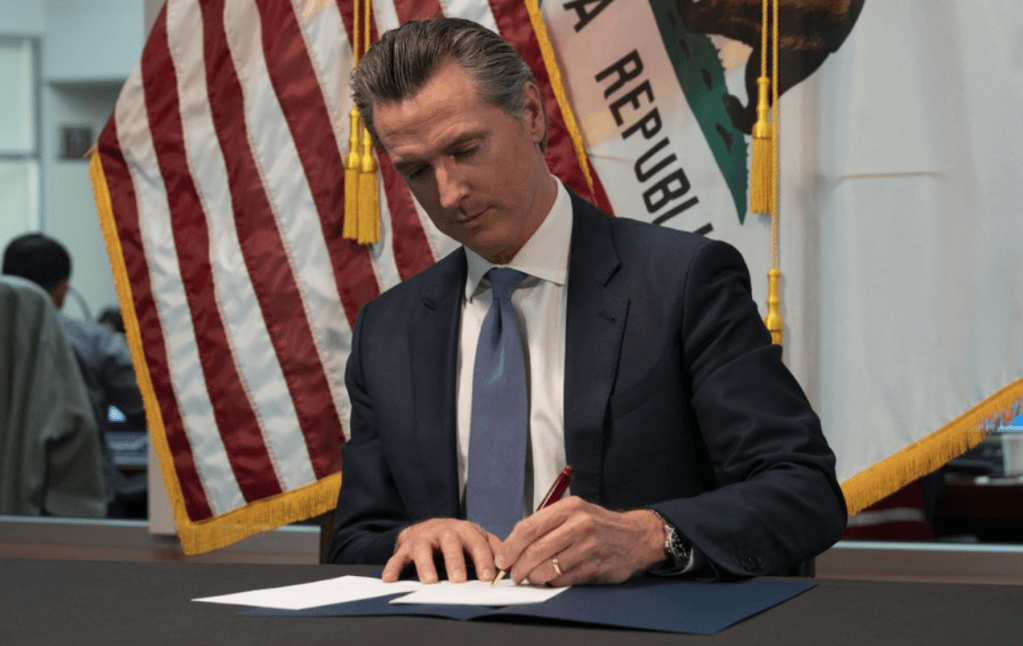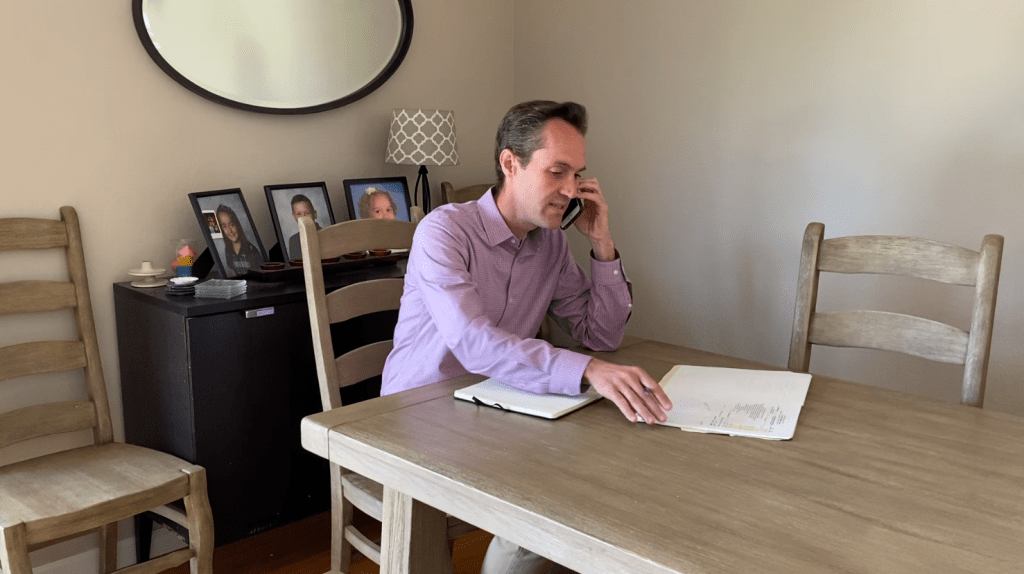Gov. Gavin Newsom’s efforts to prevent struggling renters from being evicted in California during the coronavirus pandemic are being criticized for leaving far too many tenants vulnerable to the possibility of getting kicked out of their homes.
While most Bay Area counties have enacted stronger COVID-19-related protections for tenants, advocates foresee a potential crisis on the horizon once eviction moratoriums begin to expire this summer. Tenants will still owe any back rent accrued during the pandemic, and in most cases, can be evicted for failing to pay it back.
Despite eviction moratoriums in place across the Bay Area, landlords in San Francisco and Oakland have still filed dozens of eviction notices in those cities since the temporary prohibitions were put into place. Those evictions wouldn't stand in court, according to attorneys who spoke to NBC Bay Area, but some worry tenants unaware of their rights may still leave their homes after receiving such a notice.
Organizations representing landlords say the pandemic could also leave property owners unable to pay mortgages and property tax bills on rental properties if tenants miss rent payments due to work furloughs and layoffs.
The governor did not issue an evictions moratorium...
Jackie Zaneri, attorney with Centro Legal de la Raza
“The governor did not issue an evictions moratorium – that’s confusing for a lot of tenants because the governor did actually say that he issued an ‘evictions moratorium,’” said Jackie Zaneri, an attorney with the tenants’ rights group Centro Legal de la Raza. “The most generous reading of the governor's order is that he issued some very limited protections for certain tenants to prevent sheriffs from evicting them for a very limited time.”

Zaneri said the governor’s actions mainly help to “delay” some evictions, not necessary “stop” them.
“The governor’s order is not an all-encompassing protection in any way,” Zaneri said. “It is a narrow, narrow order.”
To qualify for the protections granted under the governor’s executive order, renters must notify their landlord, in writing, about their inability to pay rent no later than seven days after their rent is due. Tenants must also keep documentation proving their lack of payment stems from the ongoing pandemic.
“The problem with a lot of proof requirements and notification requirements is that they might cut out a lot of tenants whose inability to pay is directly related to the crisis,” Zaneri said. “People who are sick, people who are caring for sick family members, people who are out of work and trying to figure out how they're going to feed their families -- those are the people least likely to be able to take some affirmative steps or figure out what their rights are in time.”
4.3 Million Unemployed in California
About one in five workers across California has lost their job in just the past two months – that’s more than 4.3 million people now unemployed in the state.
“I'm drowning every day,” said Monique Howard, 55, who was recently laid off from her office manager position in Petaluma. “I don't know how we get through this.”
I'm drowning everyday. I don't know how we get through this.
Monique Howard, recently laid off
Howard is a single mom who lives with two of her three sons in a Petaluma apartment. She said the federal stimulus and her unemployment checks aren’t enough to pay the bills.
“I have people's lives who depend on me and -- I don't know how to take care of them at this point.”

Howard said she phoned the managers of her Petaluma apartment complex, The Vineyard Luxury Apartments, in hopes of working out a payment plan. But instead of calling her back, she says, they sent her an eviction notice on April 6. More than two weeks later, the apartment complex sent her another letter rescinding the eviction notice, saying it has “no intention of pursuing any evictions for nonpayment at this time.”
Sonoma County's eviction moratorium, which was in place when Howard received her notice, currently prevents such eviction notices until 60 days after the public health emergency ends.
JRK Property Holdings, which owns The Vineyard Luxury Apartments, did not respond to an interview request from NBC Bay Area. Howard said she is now making partial rent payments, but could face eviction if her back rent is not paid in full by the time Sonoma County's ordinance expires. Without a job, she worries about how she's going to dig herself out of a growing financial hole.
Across the country, nearly 1 million people didn’t pay any portion of their rent last month – that’s double compared to this time last year, according to the National Multifamily Housing Council. That figure doesn't include tenants on payment plans, such as Howard, who paid a portion of their rent.
In California, Newsom penned his executive order in late March to offer temporary protections to renters who are now struggling financially in the midst of the pandemic.

Critics Argue Gov. Newsom’s Order ‘Fails to Protect Tenants’
The Western Poverty Law Center (WPLC) reviewed the governor’s executive order and determined it “fails to protect tenants,” adding that it “provides little practical help for renters during the COVID-19 pandemic.”
The governor’s executive order, which the state describes as a “moratorium on evictions,” is “not a moratorium,” according to the WPLC review. “At best, the order extends the time period before [renters] are physically locked out by the sheriff.”
On Thursday, the NBC Bay Area Investigative Unit questioned the governor about his executive order and the subsequent criticism.
The order seems very clear from my perspective, very strong from that perspective.
Gov. Gavin Newsom
“I don’t know that it’s weak,” Newsom said. “You cannot legally evict someone. You can’t enforce an eviction pursuant to that order. The order seems very clear from my perspective, very strong from that perspective.”
Others have stepped in to fill the void critics say the governor left wide open. California’s Judicial Council, which oversees courts in the state, recently issued its own emergency order to slow down evictions. Current cases are now delayed at least two months, while new evictions cannot be filed until three months after California’s State of Emergency ends.
Most Bay Area communities have also enacted tougher restrictions on evictions. In San Francisco, those falling behind on rent have six months to pay it back after the city declares the emergency over.
In Oakland, tenants who never pay back rent owed during the pandemic are still safe from being evicted – forever. Landlords can take them to court to get the money, but non-payment of rent during the pandemic can’t ever be used to kick them out.
Despite those moratoriums, some landlords are still sending out eviction notices, although it's difficult to gauge just how many because of limitations on reporting requirements.
In San Francisco, landlords filed 19 eviction notices with the San Francisco Rent Board during the first two weeks of April, according to city records. That figure doesn't include three-day notices to pay rent or quit, as landlords are not required to file those notices with the city.
And two weeks ago, Oakland's Rent Adjustment Program said it had received 25 eviction notices filed by landlords since the city's moratorium went into effect in late March.
"Although these numbers may seem low, it does not necessarily mean that tenants are not still receiving eviction notices from their property managers," city spokesperson Autumn King said in an email. "It may be an indication that property managers/owners are not conforming with the law, which requires them to file a copy of the notice with the Rent Adjustment Program."
Property owners say the impacts of COVID-19 on tenants will have a cascading effect that could be devastating to landlords.
When rent goes unpaid, mortgages go unpaid.
Joshua Howard, executive vice president of the California Apartment Association
“When rent goes unpaid, mortgages go unpaid,” said Joshua Howard, executive vice president of the California Apartment Association, which represents about 50,000 landlords across the state.
“Let’s face it, we don't know how long this crisis will last.”
Howard worries about what happens once all the protections expire.
“Struggling renters are going to need help not just to stay current on their rent once they get back to work, but to pay the back rent that they've had to defer during this time of unemployment,” he said.

New Bill Aims to Provide Govt. Assistance to Landlords
Howard is now supporting a new state bill that would provide landlords with government assistance. They’d get paid up to 80% of the rent they're owed if they agree to forgive the other 20% and hold off on any rent hikes until 2021.
“The magnitude of the problem is potentially so large that the only source of funding available right here and right now is from the state of California,” Howard said. “The state has billions of dollars in a rainy day fund, and I don't think there's any moment like the present to call this moment a rainy day."
California Forecasts $54 Billion Deficit
Lawmakers are still researching the possible price tag, but in the wake of the coronavirus, California is now projecting a $54 billion deficit, easily wiping out the state's $20 billion rainy day fund.
Howard says if she survives this health crisis, she’s still likely to suffer from the financial one. She’s already missed two rent payments, doesn’t know when she’ll return to work, and no one seems to have the cure.
“I just worry about how we're going to survive,” Howard said. “You know, as a single mother. And I just I don't know."
"still" - Google News
May 12, 2020 at 09:25AM
https://ift.tt/3dw4Pey
Renters Still Getting Eviction Notices During Pandemic Despite California’s ‘Ban’ - NBC Bay Area
"still" - Google News
https://ift.tt/35pEmfO
https://ift.tt/2YsogAP
Bagikan Berita Ini















0 Response to "Renters Still Getting Eviction Notices During Pandemic Despite California’s ‘Ban’ - NBC Bay Area"
Post a Comment